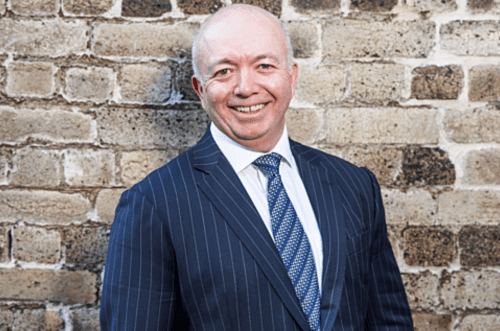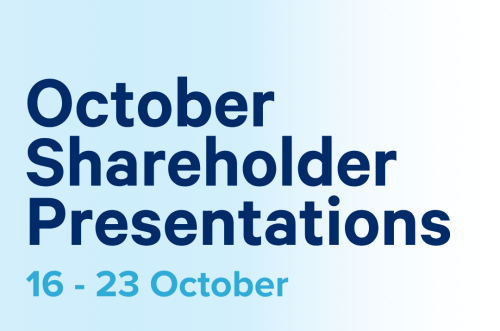Jack Derwin, Markets and Finance Correspondent at Capital Brief.
The future is notoriously hard to predict. Rewind 12 months and markets were pricing in a US recession in 2023. Today the US economy is still growing, the unemployment rate in America has barely budged at 3.7% and the S&P 500 looks like closing out the year 20% higher than it began.
It demonstrates the folly of trying to anticipate how markets might shake out in the far off future.
Yet, in saying that, it is also illuminating to see how Australia’s money movers see the state of play today and what themes and issues they think will preoccupy them tomorrow.
Enter Future Generation, a philanthropic listed investment fund that gives retail investors exposure to some of Australia’s top fundies, and which supports youth charities. Some of its fund managers told Capital Brief what they predict will dominate headlines and markets in 2024.
Private pummelling
Valuations were evidently inflated during the COVID-19 era, pumped up by easy money and a retail trading frenzy. A rapid rate tightening cycle helped trigger a correction on public indices in 2022.
Chris Prunty, portfolio manager at QVG Capital, says the same never really happened for private assets but that he expects there will be “a coming-to-Jesus moment” in 2024.
“This is partly due to the fact that venture-backed companies over-raised in 2021 and private equity companies termed out their debt,” he said.
“We expect the cash burn of venture-backed companies to start to bite next year while at the same time PE-owned companies will have to refinance their debt at rates double that of the past few years.”
“If this occurs the transparency and liquidity of public market investments might be viewed in a more favourable light. At least we hope so.”
Future tech
If 2023 was the year ChatGPT captured the world’s attention, 2024 will be the year generative AI really begins to make its mark, according to Magellan Asset Management’s Nikki Thomas.
“Generative artificial intelligence will continue to make extraordinary progress and commercialisation opportunities will become increasingly evident,” Thomas said.
Similarly she sees the biggest opportunities in global equities falling in future technologies and industries, with Australia’s largest trading partner likely to take a leading role.
“China has built significant capabilities in battery technology, electric vehicle production and renewable energy equipment. As this grows it will seek to export its products and the prospect of this bringing significant new competition in developed markets will impact expectations for impacted industries and companies.”
Back to the future
Drill down into the index this year and it becomes quickly obvious that just a handful of names have produced most of the returns.
Chip company Nvidia more than tripled its market cap this year on the back of AI-mania.
Rounding out the rest of the so-called Magnificent Seven are Alphabet, Amazon, Meta, Tesla, Microsoft and Apple, producing average returns of around 99% between them.
“The broader market was far less impressive with an equal-weight S&P 500 delivering 6% over the year,” Vihari Ross from Antipodes Partners said.
“Value dispersion, measured by the spread between the highest and lowest quintile stock multiples is close to the widest since the 2000 tech bubble.”
She expects “significant opportunities” to appear as this gap reverses in 2024 on the back of economic pressure and some potential rate cuts.
“This is positive for the performance of the value factor and the stock picking within it as performance broadens again and in the years beyond reveal the next generation of market winners.”
Return to form
Where those opportunities lie exactly is naturally a matter of opinion.
Gabriel Radzyminski and Campbell Morgan from Sandon Capital predict consumer names will suffer as the rising cost of living bites into household budgets. Instead they like names within the resources, infrastructure and agriculture sectors.
“Although interest rates affect them, population growth, falling oil prices and vastly improved supply chains bolster the industrial economy.”
Resources in particular will be supported by an uplift in global trade, according to Jun Bei Liu from Tribeca Investment Partners.
“By [Spring], China’s growth recovery will be in full swing and hopefully conducive to our commodity heavy index.”
She expects favourable economic winds to also flow through the Australian market more broadly, pushing housing markets higher and creating a positive wealth effect.
“In the second half of 2024, we will see demand picking up again boosted by tax cut, tourism and immigration.”
Turning point
If there was a story that has divided the market in 2023, it was the rise of Ozempic and other GLP-1 weight loss drugs.
It was enough to wipe a third of ResMed’s value at one point as analysts worried it would diminish demand for the company’s sleep apnea products.
Indeed, all have been fretting over the flow-on effects of these so-called miracle drugs on companies of all shapes and sizes. David Allen from Plato expects we’re on the precipice of something big.
“Obesity levels have tripled globally since 1976. 2024 may very well mark the turning point where this trend peaks and starts to go into reverse, albeit gradually,” he said.
Nor will its impacts be necessarily predictable. Allen points to WW, formerly known as Weight Watchers, which at first glance would have looked like one of the biggest losers if its clients opted for a drug over a fitness program.
And yet, the company’s stock is up more than 120% this year. One major factor is that it turned the risk into an opportunity, Allen explained.
“In March, Weight Watchers acquired a telehealth company called Sequence for $132m. Sequence prescribes Novo Nordisk’s weight loss drug Wegovy. That is a hell of a pivot from a company built on extolling the virtues of sheer will power.”
So too is it a timely reminder that things rarely work out like we expect.
Licensed by Copyright Agency. You must not copy this work without permission.








